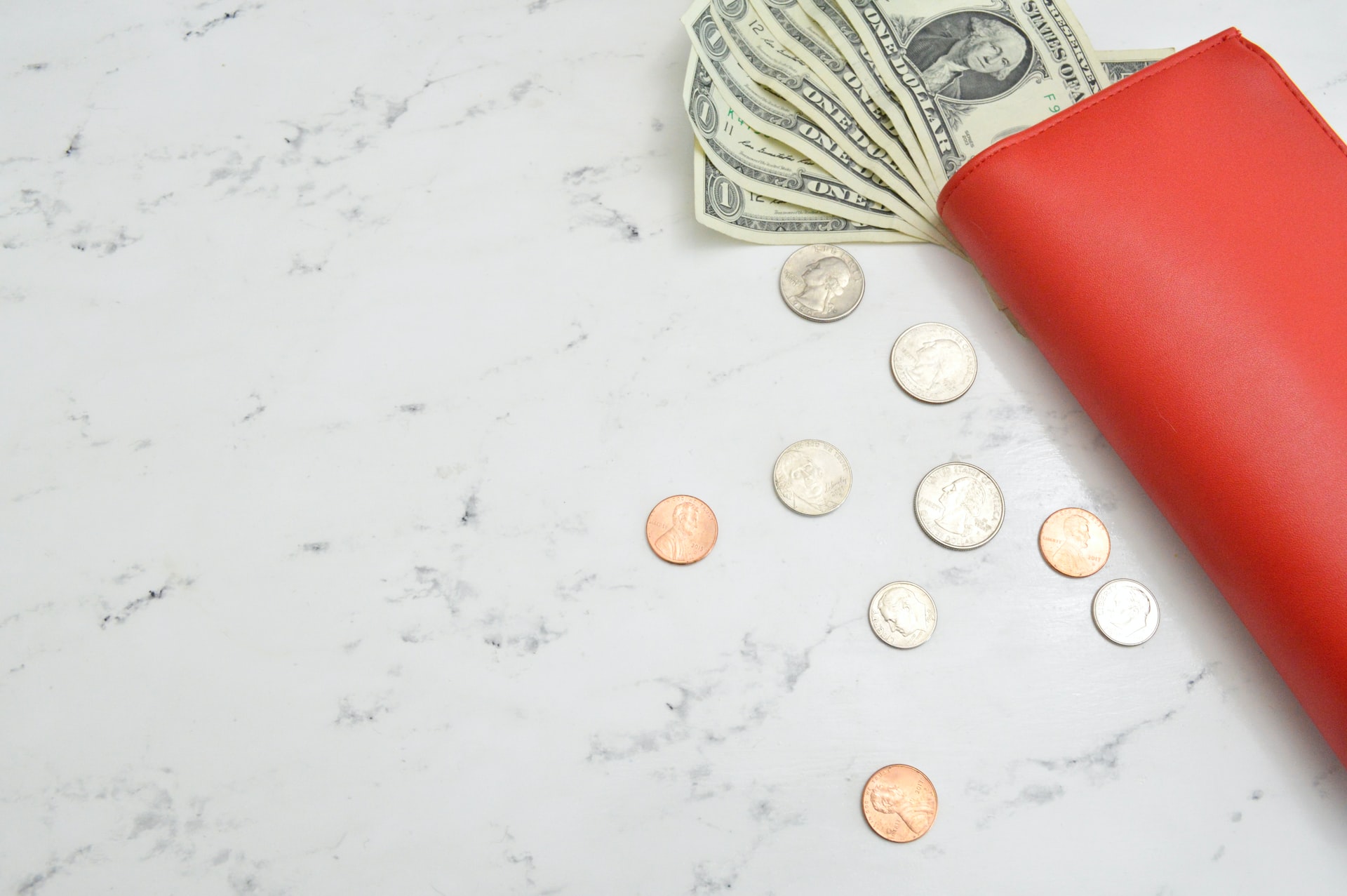Consumers open up checking accounts for various reasons. A checking account enables you to make payments via cheques, which can help during tax season. Creating several checking accounts alongside a savings account can help you organize your finances. You can open checking accounts for investment dollars, vacation expenses, emergency funds, and other financial objectives. It’s no wonder why many people want to open a new account, but some people wonder if their credit score will take a hit.
It’s no wonder why people worry about their credit scores. However, this three-digit number is essential for your future. It impacts if you get approved for loans, how much you can get, and what you’ll pay in interest. A good credit score can help you save thousands of dollars over the lifetime of your mortgage, car loan, or personal loan.
Don’t intend on borrowing capital anytime soon? This score still matters and will impact your finances. Landlords will look at a potential tenant’s credit history credit history before handing them the keys. Good credit gives you better living options and a greater chance of approval. A higher credit score can also reduce your monthly payments, while a lower credit score will restrict your options. Consumers are wary about any financial activities that can hurt their credit, including opening a new checking account. We will explore how checking accounts impact your credit score and how to protect your credit history.
Why Banks Check Your Credit
No one wants to incur unnecessary risk or go into a deal without knowing enough details about the other party. A bank or credit union will look at your credit anytime you apply for a loan or line of credit, including a credit card. Banks do not like when borrowers default on loans or fall behind on credit card debt. Enough defaults can threaten the bank’s liquidity, and if this problem becomes massive, it can hurt the economy. Because banks and credit unions keep these risks in mind, they check your credit score to see how well you can manage your money and financial obligations. Banks interpret high credit scores as positive signs and will likely approve the applicant for a loan.
Many lenders have credit score minimums borrowers must meet to get accepted for financial products. If you do not have a good credit score, lenders won’t review additional details, such as your bank account statements. A satisfactory credit score won’t guarantee that you get a loan or new credit card, but it gives you a better chance of getting approved.
Soft vs. Hard Inquiry
A bank or credit union will check your credit history, but the method they choose determines the impact on your score. Creditors can check your credit history through two methods. The soft inquiry gives lenders a basic overview of your credit report. It doesn’t ask for too much information and will not hurt your credit score. Lenders often use soft pulls for less substantial loans. Many credit builder lenders only conduct soft inquiries on your credit history. These lenders offer financial products designed to improve your score, and a hard credit check won’t put you on the right track.
Sometimes, a hard inquiry is necessary to continue the application process, especially if you want a mortgage or auto loan. Creditors use hard inquiries to assess applicants asking for riskier loans. A hard credit check will likely follow if the applicant wants to borrow thousands of dollars. A bank or credit union wants to feel confident in giving you thousands of dollars (in some cases, well over $100,000). Financial institutions want their money back with interest, and they don’t want to take unfavorable risks. Hard credit inquiries are a viable solution for these lenders.
The hard inquiry provides the bank with more information on your credit report, but it comes at a small cost. Your credit score will decrease by a few points after a hard inquiry. A single hard inquiry won’t devastate your credit score, but if you apply for too many loans and credit cards simultaneously, those hard inquiries can make a meaningful dent in your score. Lenders may wonder why you have applied for so many loans and if you can keep up with a new financial obligation.
Introduction to Checking Accounts and Credit Scores
How a Checking Account Works
A checking account is a type of bank account that allows you to deposit money, make withdrawals, and perform various transactions like paying bills and transferring money. These accounts are designed for everyday use and typically come with checks, debit cards and online banking features. Most financial institutions also allow you to set up direct deposits, making it easy to receive your paycheck electronically.
How Your Credit Score Works
Your credit score is a numerical value that represents your creditworthiness to lenders, landlords, and even potential employers. It is based on your credit report, which details your credit and loan history. The most widely used credit scoring models are FICO and VantageScore, with scores ranging from 300 to 850. Factors influencing your credit score include payment history, outstanding debt, types of credit used, length of credit history and any new credit inquiries.
The Relationship Between Your Checking Account and Credit Score
While your checking account itself does not directly impact your credit score, the way you manage it can have an effect indirectly. To illustrate, if you use your checking account to pay bills and make loan payments on time, this can help maintain a positive payment history and contribute to a higher credit score.
By contrast, poor management of your checking account, such as overdrafts and bounced checks, can lead to negative marks on your ChexSystems report, which banks use to evaluate your risk level when opening new accounts. Though ChexSystems is separate from credit scoring systems like FICO and VantageScore, having a negative ChexSystems record may put you at a disadvantage when attempting to open new accounts or secure credit.
How Opening a Checking Account Affects Your Credit Score
Creditors use your credit score to assess your debt management skills. If you stay on time with mortgage payments, credit card debt, and other financial obligations, your credit score will rise over time. So, what does that mean if you want to open an account with your favorite bank? Luckily, opening a checking account does not impact your ability to handle debt and will not affect your credit score. In addition, most financial institutions conduct soft credit pulls before letting you open a checking account. This soft inquiry will not impact your score.
A few banks may conduct a hard inquiry before letting you open a checking account. This process will reduce your credit score by a few points, but it’s also rare. Banks need to maintain a competitive advantage over their peers, and a hard credit check for opening an account won’t do any favors. You should ask your bank if they will conduct a hard inquiry before you open a checking account with them. If the bank you’re considering performs a hard pull, you can open a checking account with another bank and not worry about the negative impact it could have on your credit score.
Opening a checking account doesn’t impact your credit score. The majority of banks won’t give you a problem and may only conduct a soft pull on your credit. However, your checking account can have an indirect effect on your credit score. In addition, the way you use this account can influence your credit score in the future. Here are some checking account scenarios that can change your credit score.
Signing Up for Overdraft Protection
Overdraft protection is a staple feature for many checking accounts. This protection offers some security if you overdraw your checking account. A bank or credit union will cover the overdraft but charge a fee for this service. That way, you can complete a purchase and then repay your way out of an unpaid negative balance. Some banks provide complementary overdraft protection, but others will conduct a hard inquiry before giving you this perk. A hard inquiry will hurt your credit score in the short term, but it shouldn’t cause panic. It’s easy to recover from a hard credit inquiry, especially if you don’t plan on getting a new loan or line of credit for a few months.
Failure to Pay Overdraft Fees
Overdraft protection lets transactions go through, but what if you don’t address the negative balance? Letting the negative balance linger too long can hurt your credit score because it will eventually hurt your payment history. The major credit bureaus prioritize payment history over the other credit scoring categories. Even though credit bureaus don’t track your checking account activity, failing to pay overdraft fees can hurt your credit score. The negative balance will become an issue for your score if your bank or credit union gives your debt to a collections agency or reports your missed payments. These events will also hurt your ChexSystems Report, which can hurt your ability to open an account in the future. The bank can also close your checking account if it has a negative balance, another event that would hurt your score. Credit length makes up 15% of your credit score, with older credit giving you an edge.
Any of those results would hurt your chances of opening a checking account in the future. Delaying repayment has other consequences that can drip into other parts of your credit. Not paying overdraft fees can also restrict your ability to repay other debts. You can’t spend the same dollar twice, and accumulating overdraft fees will limit your options. Each overdraft fee is an extra expense that can make life more stressful and hurt your payment history.
Closing Accounts With Negative Balances
If you delay long enough, financial institutions will close your account with a negative balance. However, a debt collection agency can still ask for the debt, and this closed account will stay on your credit report for up to seven years. Debt collection agencies will also report your debt to the credit bureaus, an event that will hurt your score. Continuing to delay payments at this point will further hurt your credit score.
Being Overdrawn Without Protection
Getting overdrawn will not immediately hurt your credit score, even if you don’t have protection. The good news is that a bank or credit union will not report your debt to a collections agency if you quickly pay the fee. It’s best to cover overdraws with cash instead of a new loan or line of credit. Opening up a new loan or line of credit to address your overdrawn account can lead to a hard inquiry. You may be better off using a mobile banking app that lets you get a cash advance of a few hundred dollars at 0% APR. For some people, these types of cash advances can prevent many overdrafts from occurring.
Banks Making a Hard Inquiry
It’s normal for a bank or credit union to make a hard inquiry for a risky financial product like a loan or line of credit. When you open a checking account, you get access to several financial products, including loans. Your bank may encourage you to take out a loan or make the process easier for its members. Some consumers may have to take out loans to address emergency expenses, negative account balances, and other costs. Each of those applications results in a hard credit check, but you may also encounter hard inquiries with your checking account. Some banks may conduct a hard credit check when you open a new checking account, but the majority of them only do a soft pull.
Before you open a new bank account, it’s a good idea to take a closer look at the financial institution’s products. You may have to eventually borrow money from a bank or credit union. However, some financial institutions offer short-term cash advances at 0% APR to make borrowing money more affordable. It’s possible to get cash advances like these without any hard credit checks, and you won’t have to resort to a payday lender, either. Knowing how to avoid hard inquiries will preserve your score and give you a better banking experience.
Tips to Manage a Checking Account Without Affecting Your Credit Score
Setting Up Automatic Payments
Setting Up Automatic Payments
One of the best ways to manage your checking account without affecting your credit score is to set up automatic payments for your monthly bills and other financial obligations. Enrolling in automatic payments will ensure that your bills are paid on time, reducing the risk of late fees and potential damage to your credit score.
To get started, contact your service providers and arrange for automatic payments to be made from your checking account. This will save you time and stress while helping preserve your credit health.
Frequently Asked Questions (FAQs)
Opening a checking account does not directly build your credit score, as checking accounts are not reported to credit bureaus. Your credit score is primarily influenced by factors in your credit file, including payment history (and late payments), amounts owed, your credit utilization rate and length of credit history on credit accounts.
Still, managing your checking account responsibly is essential, as mismanaging it can indirectly harm your credit score. For example, if you fail to bring your overdrawn bank account current, the bank may report the unpaid debt to credit bureaus or take legal action, which can negatively impact your credit score.
In some cases, opening a checking account can temporarily lower your credit score. This may occur if the bank performs a hard credit inquiry when you apply for an account. Hard inquiries can cause a slight decrease in your credit score and remain on your credit report for up to two years.
It’s worth noting that not all banks perform hard inquiries for checking accounts, and some banks opt for a soft credit check, which does not impact your credit score. To minimize the risk of your credit score being negatively affected, you can research and choose a bank that primarily uses soft credit inquiries for account applications.







